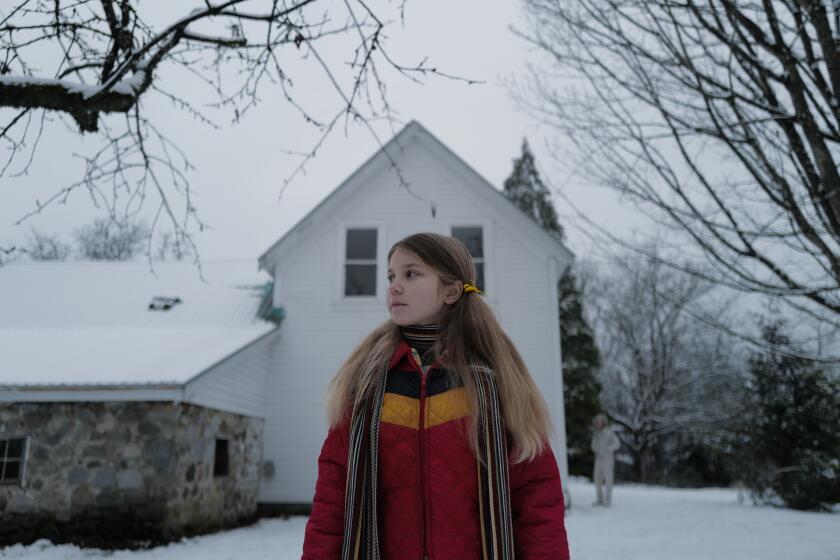New Media Frenzy Relives Bad Ol’ Days
The obsessive media coverage of model Linda Sobek’s death, coming soon after the O.J. Simpson madness, is another sign that journalism may be returning to an older, less sophisticated era.
Back then, the star of the newsroom was the fast-talking crime reporter who could wangle an interview with the mother of the deceased or filch the victim’s picture from the family album.
The well-educated need not apply in those days. One of my editors in the 1950s couldn’t understand why I wanted to graduate from college. Another hated pipe smokers. He said they were too slow and thoughtful.
We wallowed in sensation to sell papers, and it worked. Linda Sobek’s murder would have been perfect for a street edition headline: “Blond Beauty Slain; Hollywood Photographer Jailed.”
Happily, that cops-and-robbers era ended in about 1960, and only a few sentimentalists mourn its passage. The media--print and broadcast--changed agendas. We began covering issues, such as civil rights, poverty, politics, science and foreign affairs, recording a nation and world caught up in tumultuous change.
But as I walked up to the Torrance court Monday for the arraignment of the man accused of killing Sobek, I felt as though I was taking a step backward.
There, we the media waited, in the thick early morning fog, for a glimpse of the man accused of murdering Sobek, the former Raiderette, whose picture we have seen night after night.
Some of the reporters were colleagues from the Simpson trial. We’d spent more than a year covering the “Trial of the Century” and now here we were again assigned to courthouse duty.
Inside, Charles E. Rathbun pleaded not guilty. But his statement was overwhelmed by law enforcement leaks fingering him as the killer.
The arraignment was the latest event seized upon by the media in an apparent attempt to recapture the excitement, the frenzy, the ratings of the Simpson case.
Coverage peaked last Friday with television station helicopters showing the discovery of the young woman’s shallow grave in Angeles National Forest. The images on the screen flashed between the grave site and the Sobek family home. Family grief and worry was treated with crocodile tears of sympathy, much like an earlier generation of reporters showed when they talked their way into wakes and hospital corridors.
Why are the media falling over themselves these days to be first with the goriest details of our society’s violence?
Joe Saltzman, a journalism professor at USC’s Annenberg School for Communication, has been researching the subject for a book he is writing. He believes that what we’re seeing and reading has its roots in the earliest days of journalism.
Saltzman said 14th-Century minstrels, some of the first journalists, chronicled the last words of the doomed at public hangings, turned them into quickie songs and sang them for pennies to the large crowds leaving the events. Today, he said, “people won’t watch Bosnia or the state of the banking industry but they will watch when there was a beautiful model missing and now may have been murdered.”
Professor Joseph Angotti of the University of Miami’s Center for the Advancement of Modern Media, said the stations and papers are appealing to an interest in crime news that may be part of the American character. “There is something of a Wild West nature in Americans,” he said.
Local television stations started the trend, he said, and newspapers began to follow.
“I think newspapers are being driven by television stations and tabloid television shows,” he said. “Television used to take the lead from newspapers. That’s not the case anymore.”
What’s wrong with this, he said, is that all this crime coverage can elbow out “some subjects people would rather not hear about, uncomfortable subjects, subjects that deal with race relations, famine, civil rights, all kinds of things people don’t want to hear about.”
*
I don’t need experts to tell me the result of this shift of emphasis.
For starters, we’ll start losing serious journalists. Not many people will want to go through the misery of getting started in journalism if the future is limited to chasing crime and other sensations.
And, as the media shifts more resources to sensation, it will have less for the difficult, often tedious and labor-intensive work of digging out complex scandal and explaining public policies that affect every viewer, listener and reader. The O.J. story was a bottomless pit, as far as journalistic effort was concerned.
Judging from that experience, I have some advice:
If you plan to make an illegal campaign contribution, cheat your workers or loot the public treasury, this is the time to do it. We are otherwise engaged.
More to Read
The biggest entertainment stories
Get our big stories about Hollywood, film, television, music, arts, culture and more right in your inbox as soon as they publish.
You may occasionally receive promotional content from the Los Angeles Times.






